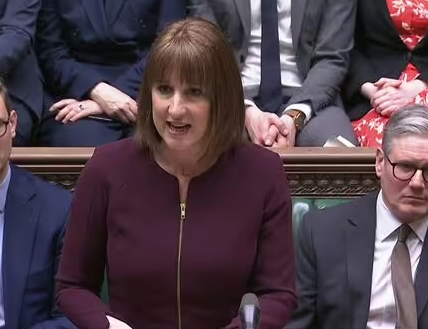Labour is “presiding over soaring bills across England, piling more and more costs on families”, claimed Shadow Housing Secretary James Cleverly.

Chancellor Rachel Reeve this week (Image: Getty)
Second homeowners across England could see their council tax bills effectively quadruple under proposals being considered by Chancellor Rachel Reeves, with the highest-value properties facing annual charges of more than £21,000. The Treasury is examining plans to double council tax rates for the top two bands, G and H, as part of efforts to raise £9.4 billion in additional revenues by April 2029 – a 26 % increase overall.
For primary residents, this would lift typical band G bills from £3,800 to £7,600 per year, and band H from £4,560 to £9,120. However, second homeowners in more than 200 council areas already pay double the standard rate under the second-home premium, meaning the changes would compound to four times the base amount for around 17,000 affected properties in those top bands.

Shadow Housing Secretary James Cleverly (Image: Getty)
Council Taxbase 2025 data shows 23,103 second homes fall into bands G and H nationwide, with concentrations in southern and western regions.
The Telegraph‘s analysis of 2025/26 rates indicates Rutland would see the steepest rises, with band G second homes charged up to £17,807 annually after the adjustments, and band H up to £21,368.
Other high-impact areas include Dorset (353 such homes at £17,535 for band G), Wealden (£17,390), and Lewes (£17,516). Urban authorities such as Westminster could gain £20 million extra annually from 2,565 second homes, while Cornwall would add £7.4 million and South Hams £5.7 million.
Although the total number of second homes has declined slightly, those in premium bands have increased, highlighting a trend toward higher-value holdings.
The proposals come amid falling demand for second homes, with their share of UK purchases dropping from 2.2 % in 2012 to under 0.5 % recently. Critics argue the measures unfairly target families, particularly in rural areas where second homes support local economies through tourism.
Shadow Housing Secretary James Cleverly criticised the plans as a reversal of Labour’s council tax freeze pledge.
He said: “Despite promising to freeze council tax, Labour are presiding over soaring bills across England, piling more and more costs on families.
“On top of Labour’s plans for a £9bn hike in council tax bills for everyone, now many second homeowners could face the grim prospect of quadruple bills because Rachel Reeves doesn’t have the backbone to get spending under control. Under Labour, everyone is paying more and getting less for it.”
John O’Connell, chief executive of the TaxPayers’ Alliance, said the second-home premium lacks justification, as owners use fewer local services.
He warned: “The holiday home tax is one of the worst examples of government crushing aspiration. Rachel Reeves is considering doubling down on what is nothing less than a socialist wealth tax. This will mean an effective quadrupling of council tax for some homeowners. The Chancellor should be scrapping the second home premium entirely, but at the very least should be exempting them from any additional council tax bands.”
The Government views the changes as a way to support cash-strapped councils without broader tax increases. Campaign groups have called for exemptions to protect housing markets in second-home hotspots, such as Cornwall, where properties for sale to second homes account for up to 5% of dwellings.
An HMT spokesman said: “We do not comment on speculation around future changes to tax policy outside of fiscal events.”


